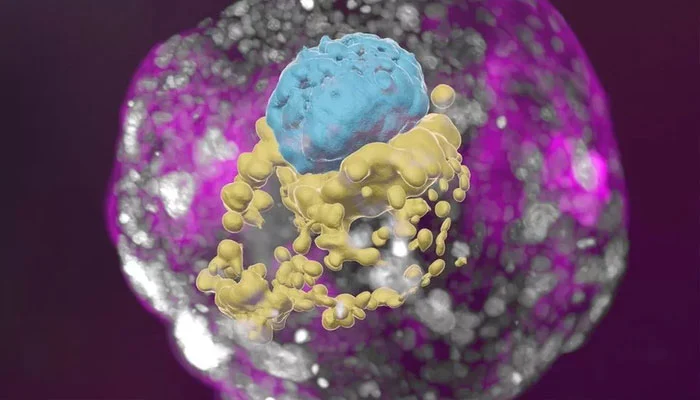Growing a Complete Human Embryo without Egg, Sperm, or Womb – The Astonishing Achievement

Growing a Complete Human Embryo without Egg, Sperm, or Womb - The Astonishing Achievement
Introduction
In the realm of scientific breakthroughs, there are moments that leave us in awe of human innovation and the relentless pursuit of knowledge. One such groundbreaking achievement has recently come to light: the ability to grow a complete model of a human embryo without the need for egg, sperm, or womb.
In this blog post, we’ll delve into the fascinating world of this scientific accomplishment, its implications, and what it means for the future of reproductive medicine and our understanding of human development.
Human Development
Traditionally, human embryos are created through the fusion of an egg and sperm, with the fertilized egg then developing in a woman’s womb. This biological process is fundamental to human reproduction. However, recent scientific advancements have challenged conventional wisdom, pushing the boundaries of what we thought was possible.
Growing a Complete Model of a Human Embryo
It is led by Dr. Ali Brivanlou at Rockefeller University in New York, has made a remarkable breakthrough in the field of developmental biology. They successfully created a complete model of a human embryo in the laboratory without the use of egg or sperm. Here’s how it works:
Stem Cells: The researchers used human pluripotent stem cells, which are capable of developing into any cell type in the body, to create the embryo model. These stem cells were coaxed into forming the three primary cell layers that make up an embryo: the ectoderm, mesoderm, and endoderm.
Self-Organization: Remarkably, the stem cells organized themselves into a structure that closely resembled a natural human embryo, including the development of crucial structures like the amniotic sac and the embryonic disc.
Ethical Considerations: This achievement bypasses many of the ethical concerns associated with traditional embryo research, as it does not involve the use of fertilized eggs.
Applications
The ability to grow a complete model of a human embryo in the laboratory without the need for egg or sperm has profound implications for various fields:
Understanding Human Development: This breakthrough provides researchers with an unprecedented opportunity to study human development in its earliest stages. It could lead to a deeper understanding of how birth defects and developmental disorders occur.
Drug Testing: The embryo model can be used to test the effects of drugs and environmental factors on early human development. This could revolutionize drug safety testing during pregnancy.
Fertility Treatment: While still in its early stages, this research may hold promise for individuals struggling with infertility. It could potentially lead to new ways of growing embryos for fertility treatment.
Ethical Research: By eliminating the need for fertilized eggs, this method offers a more ethically acceptable avenue for embryonic research.
Regenerative Medicine: The ability to create complex cell structures could have applications in regenerative medicine, including the development of tissues and organs for transplantation.
Challenges and Ethical Considerations
While this achievement is undoubtedly groundbreaking, it also raises important ethical questions and faces challenges:
Ethical Oversight: The research must be subject to rigorous ethical oversight to ensure that it is used for responsible purposes and avoids any misuse.
Safety Concerns: Ensuring the safety of any future applications, such as fertility treatments, is paramount. Potential risks and unintended consequences must be carefully evaluated.
Legal and Regulatory Framework: Developing a legal and regulatory framework to govern this technology is crucial to ensure it is used responsibly and ethically.
Conclusion
The ability to grow a complete model of a human embryo without the need for egg, sperm, or womb represents an astonishing achievement in the world of science and medicine. It offers a wealth of opportunities for advancing our understanding of human development, improving drug safety testing, and potentially addressing infertility issues.
However, it also comes with significant ethical considerations and challenges that must be addressed with careful consideration and responsibility. As this field of research continues to evolve, it holds the potential to reshape our understanding of human life and development in ways we could have never imagined.
For More Related Articles Browse Our Website Blogster.pk
For social Connection You can also Visit and follow our Social media Platforms
Facebook , Instagram, Linkedin, Pinterest, Quora, Twitter, Youtube.








